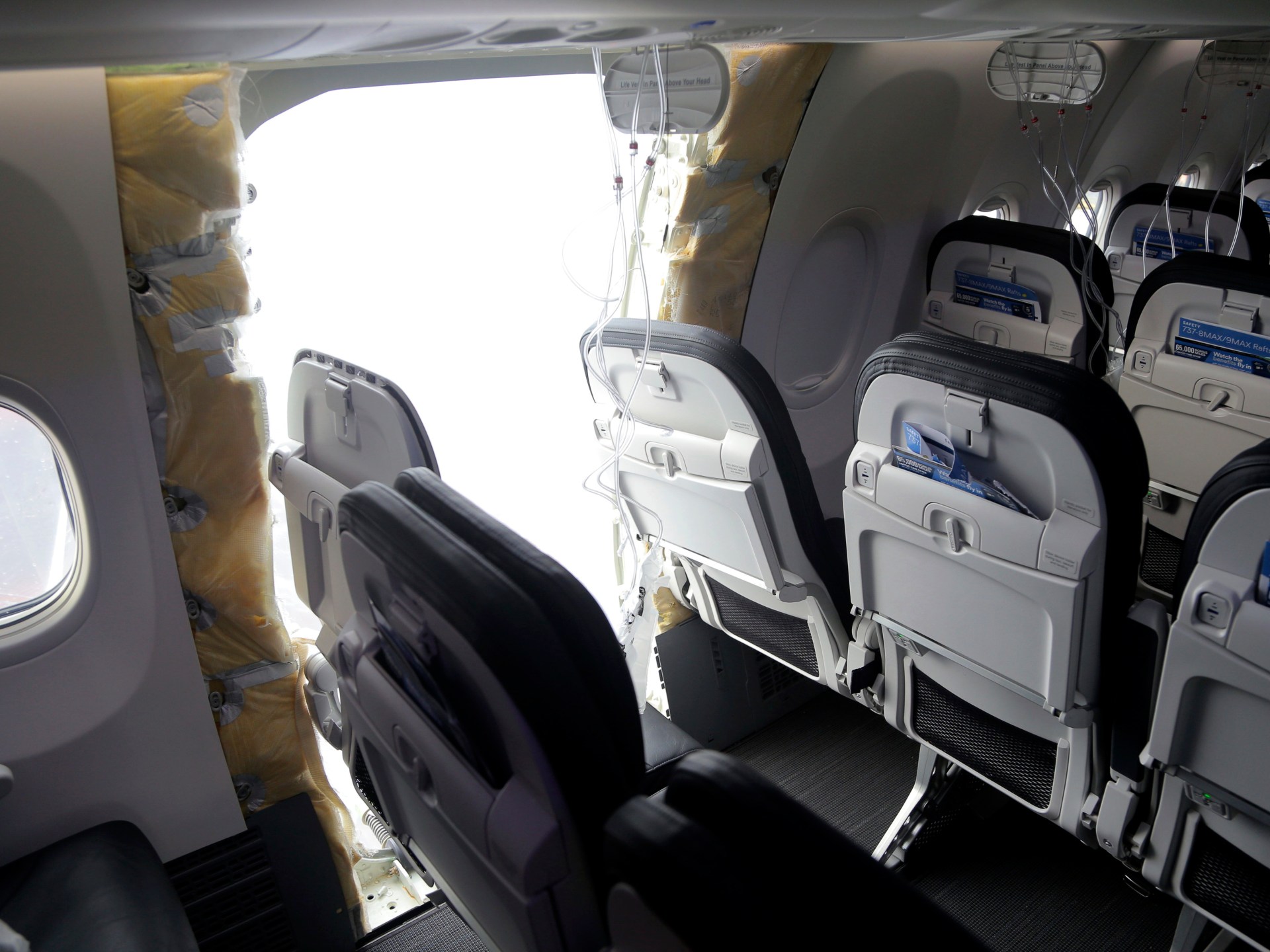Boeing's Safety Oversight Under Scrutiny After 737 MAX 9 Incident: NTSB Report Reveals Systemic Failures

In a damning report, the United States National Transportation Safety Board (NTSB) has laid bare the systemic failures within Boeing's safety culture, following a midair emergency involving a 737 MAX 9 aircraft. The January 2024 incident, which saw a cabin panel blowout, has sparked a major crisis for the aerospace giant, highlighting glaring deficiencies in training, guidance, and oversight. The NTSB's findings have not only put Boeing in the spotlight but have also raised questions about the Federal Aviation Administration's (FAA) role in the oversight of aircraft production.
NTSB Chair Jennifer Homendy did not mince words in her critique, stating that the accident was entirely preventable. The report revealed that Boeing had failed to install four critical bolts during the production of the Alaska Airlines MAX 9 aircraft, a lapse that should have been caught through internal audits and reports over the past decade. "The safety deficiencies that led to this accident should have been evident to Boeing and to the FAA," Homendy asserted, emphasizing the near-miraculous avoidance of fatalities or serious injuries.
The repercussions of this incident have been swift and severe. Boeing's reputation has taken a significant hit, resulting in the grounding of the MAX 9 fleet for two weeks and a production cap imposed by the FAA, limiting output to 38 planes per month. The FAA has pledged to maintain this cap until Boeing can demonstrate consistent safety and quality standards. In response to the crisis, Boeing has expressed regret and committed to enhancing safety measures across its operations.
The fallout has also prompted a criminal investigation by the US Department of Justice, examining Boeing's compliance with a 2021 deferred prosecution agreement. The incident led to the resignation of CEO Dave Calhoun, with new CEO Kelly Ortberg facing the daunting task of steering the company through these turbulent times. While Ortberg has been praised for his leadership, the challenges ahead are formidable, requiring a comprehensive overhaul of Boeing's safety protocols.
This latest setback for Boeing is compounded by the FAA's admission of being "too hands-off" in its oversight role, prompting an increase in inspectors at Boeing and its fuselage manufacturer, Spirit AeroSystems. The incident has reopened wounds from previous tragedies, including two fatal 737 MAX crashes, and has intensified scrutiny on Boeing's production practices. As investigations continue, the aviation industry watches closely, aware that the implications of these findings could reshape the future of aircraft manufacturing and regulatory oversight.
🔮 Fortellr Predicts
Confidence: 85%
In response to the continuing scrutiny and revelations about Boeing's safety issues, it's anticipated that there will be significant corporate restructuring within Boeing aimed at restoring its reputation and complying with heightened regulatory standards. The appointment of Kelly Ortberg as CEO suggests an effort to revitalise leadership and project stability to investors and regulators. Increased oversight by the FAA will likely result in Boeing implementing stricter quality control measures and expanding training programs for their employees. Given the involvement of the Justice Department and the pending criminal investigation, it's plausible that legal proceedings will continue to exert pressure on Boeing, potentially resulting in financial settlements or further regulatory constraints.
With regards to the FAA's imposed production cap on the 737 MAX 9, we can expect this restriction to remain in force until the safety enhancements and quality assurances are sufficiently verified by regulators. This would delay Boeing's production schedules and delivery timelines, affecting revenue streams and potentially leading to penalties from airlines dependent on timely aircraft deliveries. The market response may initially result in a drop in Boeing's stock value, reflecting investor uncertainty, though long-term investors might see this as an opportunity to buy owing to the company's eventual recovery plans.
For the broader aerospace industry, Boeing's issues might prompt other companies to preemptively review their safety protocols and regulatory compliance measures. Competitive manufacturers like Airbus may gain market share due to current customer hesitations regarding Boeing aircraft, which could influence global airline purchasing strategies. The overall impact will drive an industry-wide focus on safety and regulatory compliance, ushering in initiatives to enhance aircraft safety technologies and production reliability.
On an international level, countries relying on Boeing aircraft could impose additional inspections or even temporary groundings, aligning with U.S. regulatory opinions. This will highlight the global ramifications of Boeing's operational challenges and reinforce the importance of multinational cooperation and oversight in the aviation sector. As investigations regarding the Air India accident unravel, if linked to systemic faults, this may trigger further scrutiny and regulatory tightening globally.